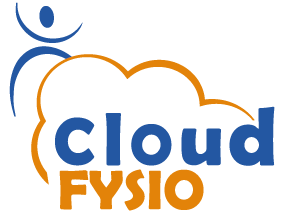Oncology physiotherapy focuses on the physiotherapeutic treatment of patients with cancer. This includes both the effects of cancer itself and the effects of medical treatment for cancer.
Examples of these effects include pain, tension, stiff scar tissue, skin changes, joint and muscle stiffness, lymphedema, edema, muscle weakness, loss of conditioning, and fatigue.
ancer presents in many forms with various treatment options available. Fortunately, due to current medical care, survival rates have greatly increased. Medical treatments such as surgery or radiation therapy can cause scar tissue formation. This scar tissue can lead to pain, movement problems, restrictions, and lymphedema (fluid buildup). Shoulder problems, for example, can arise from adherent scar tissue (and lymphedema accumulation) following breast cancer treatments.
With specific techniques such as myofascial massage techniques, joint mobilizations, and manual lymph drainage, these symptoms can be alleviated directly.
The following physiotherapeutic treatments are possible:
- Joint mobilizations
- Myofascial techniques
- Connective tissue massage
- Scar tissue massage
- Exercise therapy
- Lymphedema therapy
- (Lymphatic) Taping
- Oncological fitness
Oncological Rehabilitation
During and after cancer treatment, symptoms such as fatigue, decreased conditioning, reduced muscle strength, anxiety, depression, and uncertainty can arise. Rehabilitation can help reduce these symptoms and improve daily functioning.
During cancer treatment, physical activity is often limited. Due to surgeries, chemotherapy, and radiation therapy, people become very fatigued and are less active in daily functioning. By the end of cancer treatments, physical condition is significantly diminished.
Various scientific studies have shown that people benefit from rehabilitation training during and after cancer treatment. Fatigue and anxiety decrease, while physical condition and strength improve.
Exercise not only improves conditioning but also aids in overall recovery. By exercising, you strengthen your immune system, build muscle mass, and fortify your bones. Additionally, there are psychological benefits; people regain confidence in their bodies and can better manage emotions.
Training can begin during cancer treatments (including chemotherapy). After the initial intake, a customized training program will be developed with you. This may be adjusted as needed during chemotherapy weeks. Oncological rehabilitation takes place twice a week for an hour at our location at “Van de Kamp-Sport” in Almere Stad.
After an intake interview and examination, a treatment plan will be developed together with you.
Oncology physiotherapy or oncological fitness can be implemented in all stages of cancer. To properly guide oncological clients, knowledge of the disease, medical treatments, and their effects is important.
Yvette van Wegen is the specialist in oncological physiotherapy and lymphedema therapy. In addition to being a physiotherapist, Yvette is also a movement scientist and highly active in sports.

Yvette van Wegen






